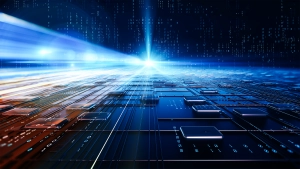From chatbots and virtual assistants such as Siri and Alexa, to automated industrial machinery and autonomous cars, Artificial Intelligence (AI) has been embedded in our society and lives for the past decade and its impact is hard to ignore.
Today, the most widely used technology in the AI environment is Machine Learning, a system of advanced software algorithms designed to perform a specific task, such as answering questions or translating languages. As time goes on, these systems are exposed to and collect more and more data, becoming more and more accurate.
According to a study by IDC, government and business spending on AI technology will exceed $500 billion by 2023. But, really, what can be done with artificial intelligence?
There is a clear trend towards the use of platforms that allow AI to be used in a more agile way, making Machine and Deep Learning accessible to all users, without the need for experience in implementing or tuning machine learning models.
Machine learning platforms such as H2O.ai offer a complete set of tools and algorithms to help users develop, implement and manage Machine Learning models. This tool is used by companies to solve a wide variety of problems such as: optimising marketing performance, fraud detection or predicting customer behaviour.
These platforms have a clear advantage: time reduction. This allows projects that take up to 10 months to develop to be reduced to two weeks.
Artificial Intelligence in the Energy Sector
Artificial Intelligence is becoming increasingly important and has great potential for future design in the energy industry. AI helps to make the energy sector more efficient and safer by analysing and evaluating volumes of data.
Some innovations have already been implemented this year, here are some of them:
- Improving the efficiency of power generation and distribution
- Developing more advanced renewable energy sources
- Helping energy companies to better understand and predict consumer behaviour
- Improving the security and reliability of the energy grid
- Monitoring and controlling the performance of various energy-related systems
Overall, the use of AI in the energy sector is helping to drive innovation and improve the sustainability of our energy systems.
Artificial Intelligence in the Financial Sector
Sectors such as banking and insurance are some of the clearest examples of how large volumes of data are handled. This data has unlimited potential if you have the right tools. The application of the same can be translated into:
- Improving the accuracy and speed of financial transactions
- Develop more advanced commercial algorithms
- To help financial institutions better understand and predict market trends.
- Improving the security of financial systems
- Monitor and detect fraudulent activities
Artificial Intelligence in the Pharmaceutical and Healthcare Sector
- Improving the accuracy and speed of medical diagnoses
- Developing more effective and personalised treatments
- Helping healthcare professionals to better understand and predict patient outcomes
- Improving the safety and efficacy of medical procedures
- Monitoring and managing patient health data
Overall, the use of AI in these sectors is helping to drive innovation and improve the quality of healthcare.
Now
As we have seen, the use of AI continues to expand and evolve, with more and more applications and advances in the field emerging.
Some of the current trends in Artificial Intelligence include the increasing use of Deep Learning and neural networks, the integration of AI with the internet of things (IoT) and the development of more advanced natural language processing capabilities.
In addition, there is also a growing trend towards the use of AI to improve decision-making and automate various tasks, as well as a trend towards the use of AI to improve the accuracy and speed of data analysis.






